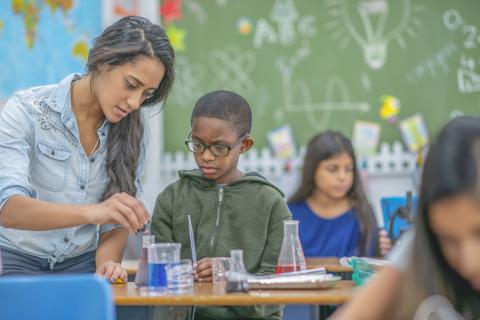From building water-conserving gardens to visiting a local estuary, District Splash! grants provide students the opportunity to learn about water resources in a hands-on way.
The Splash! school grant program provides up to $3,000 per school to enhance student knowledge of freshwater resources. The grants help teachers build on existing classroom lessons by providing hands-on activities.

“Splash! grants are a great way to support activities that empower students to take what they are learning in the classroom and put those concepts and ideas into action,” said Katherine Munson, the District’s Youth Education project manager.
Splash! grant applications for the 2019-2020 school year are now open. K-12 public and charter school teachers are eligible and encouraged to apply. Applications are available online at WaterMatters.org/SchoolGrants and are due August 31, 2019.
Before applying, learn more about the four different Splash! grant types:
Grant Type 1: Water Quality Field Study
The goal is for students to understand how human actions affect the quality of freshwater resources and ecosystems. Suggested activities include testing water quality and identifying aquatic plants while visiting a nearby water body.
Grant Type 2: Water-Conserving Garden Project
The goal is for students to understand ways to minimize the negative effects of gardening, landscaping and agriculture on Florida’s water supply and water quality. Activities may include building a water-conserving garden, participating in water quality labs and making informational items to share with peers and community members.
Grant Type 3: Classroom Resources and Community Awareness Campaign
The goal is for students to develop an appreciation for water as a limited resource and understand how they can become water stewards. Activities may include studying the sources of fresh water, discovering ways to reduce human impact on our water supply and launching a community awareness campaign.
Grant Type 4: Freshwater Resources Educational Program
The goal is for students to learn about regional water resources, their importance and protection. Activities may include visiting a facility that offers a hands-on water education programming or having an outreach program brought directly to the school.
Although there are four different types of grants, they all aim to teach students lifelong values that will benefit our environment.
“Whether it be exploring a local waterway, educating peers and community members about local water resources or understanding outdoor conservation through gardening, Splash! grants enable students to make real world connections that leave a lasting impact,” Munson said.
Watch this video to see an example of a past Splash! grant in use.
